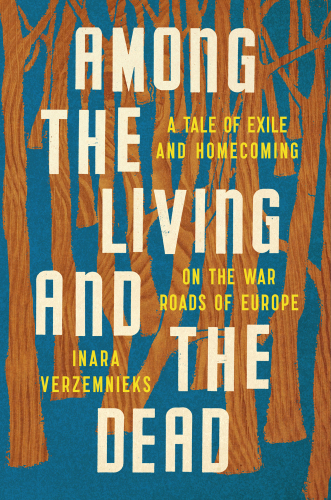
Among the Living and the Dead
A Tale of Exile and Homecoming
کتاب های مرتبط
- اطلاعات
- نقد و بررسی
- دیدگاه کاربران
نقد و بررسی

July 24, 2017
Upon a visit to her ancestral Latvia, Verzemnieks, who teaches creative nonfiction at the University of Iowa, vividly imagines the dramatic youth of her grandmother Livija, a farm girl. Verzemnieks follows the desperate flight of Livija and her two small children to a refugee camp in 1944, with her husband at war on the Russian front. Upon settling later into the Latvian community of Tacoma, Wash., Verzemnieks’s grandparents reunite, have children and grandchildren, and raise the author following her parents’ divorce; their presence alone helps keep their memories of their beloved homeland alive for the curious girl. “Words can become as real as anything we see with our eyes or feel with these hands,” Verzemnieks writes. She describes how refugees ousted from their lands form the collective bond of community in their adopted countries. By combining the memories of Livija and her sister, Ausma, with her own powerful impressions of Latvia, Verzemnieks has created a stirring family saga of exiles rich with compassion, loss, perseverance, myth, superstition, and courage.

Starred review from May 15, 2017
The Latvian world of her grandmother draws the writer, an American, back to the old country to re-create a vanished life between farm and war.In her striking debut memoir, Verzemnieks (Creative Nonfiction/Univ. of Iowa), winner of a Pushcart Prize and a Rona Jaffe Writer's Award, refashions the early life of her deceased grandmother Livija, who was born and raised on a farm in Gulbene, in eastern Latvia. She left her hometown to work in Riga as a bookkeeper and was subsequently caught up in the Soviet invasion and takeover of her country in World War II. Livija then left her homeland and came to the United States, where she was reunited with her soldier husband, who had been demobilized from the Latvian Legion, which was actually fighting for Nazi Germany against Russia. Livija and her family settled into the Latvian community of the former mill town of Tacoma, Washington. There, they raised their granddaughter, the author, after her parents got divorced and underwent mysterious crises, leaving the child in their care. The author became keenly aware of all aspects of the life Livija left behind, so much so that years later, when she actually visited her grandmother's homestead and grew friendly with her great-aunt, she was able to re-create in great detail this vanished life. Verzemnieks beautifully evokes the sympathy between Livija and her young granddaughter and the subsequent acquaintance between the author, now grown and married herself, and her great-aunt, who reluctantly revealed painful episodes of her past, such as the day the Russians arrived at the end of the war, ransacked the farmhouse, and deported her sister to a labor camp in Siberia. With fluidity and nuance, the author smoothly incorporates Latvian history into her narrative as well as the quietly buried sins of the past, such as the Latvian men's forced conscription to fight on the German side. A highly polished memoir of enormous heart.
COPYRIGHT(2017) Kirkus Reviews, ALL RIGHTS RESERVED.

February 15, 2017
Recipient of Rona Jaffe and Pushcart honors and for 13 years a staff writer for the Oregonian, where she covered her region's overlooked populations, Verzemnieks was raised among Latvian refugees and heard stories she finally had to pursue. In particular, her grandmother Livija and her grandmother's sister, Ausma, were separated by the horrific battles of World War II and did not see each other for 50 years. Livija became a refugee in the West, while Ausma endured the chill of exile in Siberia. A personal story writ large; Verzemnieks currently teaches creative nonfiction at the University of Iowa.
Copyright 2017 Library Journal, LLC Used with permission.

























دیدگاه کاربران